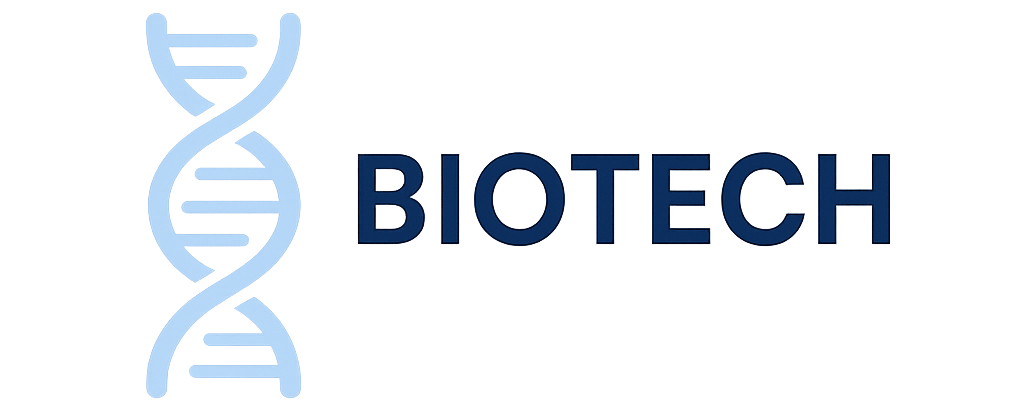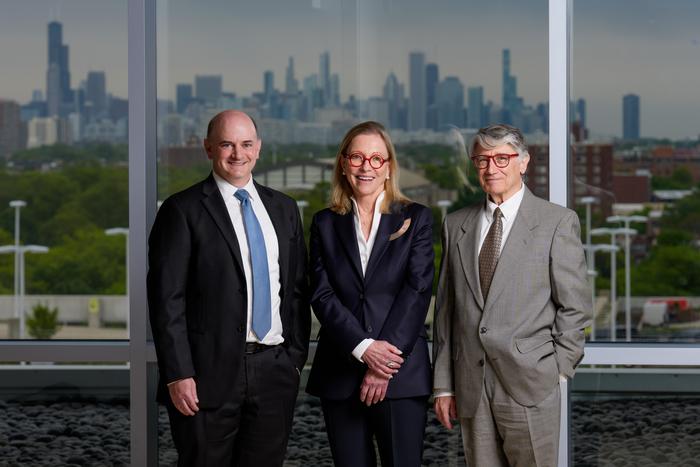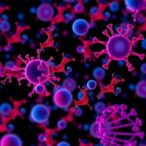
The University of Chicago has embarked on an ambitious scientific journey with the establishment of the Berggren Center for Quantum Biology and Medicine, a groundbreaking initiative supported by a generous $21 million endowment from philanthropist Thea Berggren. This pioneering center is positioned at the nexus of quantum technology and biological science, aiming to revolutionize medical research and patient care through the application of quantum engineering. The Berggren Center represents a bold vision to harness the unique capabilities of quantum mechanics—capabilities that have already transformed fields such as computing and cryptography—to unlock new insights into the fundamental processes of life and disease.
Quantum biology and medicine is an emergent interdisciplinary field that seeks to exploit quantum phenomena for biomedical innovation. Traditional biology and medical diagnostics have largely operated within classical physical frameworks; however, the quantum scale introduces novel mechanisms and sensitivities that can reveal hitherto inaccessible biological dynamics. The Berggren Center intends to leverage advances in quantum sensing, imaging, and information processing to make extremely precise measurements at molecular and cellular levels, enabling the detection and characterization of disease states with unprecedented resolution and specificity.
At the heart of this initiative lies the concept of quantum engineering—an area of applied physics dedicated to designing and deploying devices that utilize quantum states such as superposition, entanglement, and coherence. These states confer extraordinary sensitivity and information-processing power. By integrating quantum sensors into biomedical applications, researchers can observe subtle biochemical interactions and structural variations inside living tissue that are invisible to conventional imaging modalities. Such capabilities could transform diagnostics, enabling early detection of pathologies like cancer and neurodegenerative diseases when they are most treatable.
.adsslot_xcyTneDJ93{ width:728px !important; height:90px !important; }
@media (max-width:1199px) { .adsslot_xcyTneDJ93{ width:468px !important; height:60px !important; } }
@media (max-width:767px) { .adsslot_xcyTneDJ93{ width:320px !important; height:50px !important; } }
ADVERTISEMENT
The Berggren Center is headquartered within the University of Chicago’s Pritzker School of Molecular Engineering, a hub for cutting-edge research that bridges engineering, physics, chemistry, and biology. Here, a unique research environment fosters collaboration across disciplines that have historically operated independently. This interdisciplinary ecosystem is essential for training a new class of scientists—the so-called “bilingual scholars”—who possess dual expertise in quantum physics and biomedical science and who can translate quantum breakthroughs into clinical innovations. These scholars will be vital in overcoming the conceptual and technical barriers between fields, accelerating the translation from laboratory advances to bedside applications.
A defining aspect of the center’s mission is to develop revolutionary quantum tools specifically tailored for use within biomedical contexts. These include quantum sensors capable of detecting extremely weak electromagnetic fields arising from biochemical reactions, quantum imaging devices surpassing classical resolution limits, and quantum information techniques that can model complex biological systems more accurately than traditional computational approaches. Through such technologies, researchers hope to elucidate fundamental questions about cellular physiology, protein folding, and immune cell behavior—areas that hold the keys to understanding and treating a wide array of diseases.
Among the center’s flagship projects are investigations into quantum-enabled identifiers designed to observe individual immune cells in real time. This technology, pioneered by UChicago researchers including Assistant Professor Peter Maurer and Professors Alexander T. Pearson and Aaron Esser-Kahn, holds the potential to monitor thousands of immune cells simultaneously. Such high-resolution temporal and spatial data could shed light on the intricate dynamics of inflammation and tumor microenvironments, enabling truly personalized immunotherapies with enhanced efficacy and minimized side effects. This exemplifies how quantum tools can precisely capture biological complexity in vivo.
Underpinning the Berggren Center’s research agenda is a commitment to translating quantum discoveries into clinical practice. Achieving this requires close integration with biomedical research and patient care systems, a natural strength of UChicago Medicine. Mark Anderson, Executive Vice President for Medical Affairs, notes that the center’s interdisciplinary approach will not only drive technological innovation but also foster new educational pathways, including specialized training programs for physician-scientists fluent in quantum technologies. This strategic focus on workforce development aims to sustain a pipeline of medical professionals equipped to implement next-generation quantum diagnostics and therapies.
Leadership at the Berggren Center reflects its collaborative spirit. Co-directors Greg Engel and Julian Solway bring complementary expertise in quantum physics, chemistry, and translational medicine. Engel’s research delves into quantum dynamics and excited-state reactivity, exploring mechanisms by which quantum phenomena influence molecular behavior. Solway, with a career dedicated to bridging scientific disciplines and accelerating medical discovery, is focused on fostering the frameworks needed to transform complex quantum innovations into practical healthcare solutions. Together, they steer the center toward clinical impact, building on foundational projects like the NSF Quantum Leap Challenge Institute for Quantum Sensing for Biophysics and Bioengineering.
The conceptual leap embodied by the Berggren Center is inspired in part by Berggren’s own scientific curiosity, sparked during an encounter with astronomers studying quantum mechanics’ revolutionary role in understanding the cosmos. Recognizing the potential for quantum science to unveil hidden processes within human physiology, Berggren’s philanthropic vision seeks to create a synergy between the most advanced quantum technologies and cutting-edge biomedical research. The resulting paradigm promises to redefine how diseases are diagnosed, understood, and treated, opening new frontiers in precision medicine.
Educating the next generation of researchers and clinicians is core to the center’s strategy. By funding fellowships and supporting seed projects, the Berggren Center fosters an interdisciplinary community equipped to navigate and innovate at the crossroads of quantum science and medicine. Moreover, hosting international conferences and workshops will establish a global network of scholars and practitioners devoted to advancing quantum biology and medicine as a unified field, accelerating discoveries and their clinical translation worldwide.
A pivotal challenge that the Berggren Center confronts is navigating the methodological and conceptual divide between quantum mechanics and biological complexity. Biological systems operate in warm, noisy environments typically thought to disrupt fragile quantum states. However, emerging evidence indicates that biological organisms may exploit quantum coherence and entanglement in processes such as photosynthesis and avian navigation. By elucidating and harnessing these phenomena, the center’s research aims to uncover novel quantum-biological mechanisms that could be manipulated for therapeutic outcomes.
The Berggren Center’s ambitious goals align with a global movement recognizing that the interface of quantum science and health represents one of the most promising frontiers of 21st-century science. By combining quantum-enabled technologies with profound biological questions, UChicago seeks to empower clinicians and researchers to identify diseases earlier, develop more precise treatments, and deliver transformative patient care. This paradigm shift promises to deepen our fundamental understanding of human health and disease, ultimately changing lives through innovation that was once the realm of science fiction.
In summation, the establishment of the Berggren Center for Quantum Biology and Medicine marks a seminal moment in the convergence of physics and medicine. Supported by visionary philanthropy, cutting-edge expertise, and vibrant institutional support, the center is poised to act as an incubator for quantum-enabled biomedical breakthroughs. Its interdisciplinary approach, commitment to education, and focus on clinical translation establish a new model for how complex scientific domains can unite to solve some of humanity’s greatest health challenges, ushering in a new era of precision medicine grounded in the laws of quantum mechanics.
Subject of Research: Quantum biology, quantum engineering, biomedical innovation, translational medicine
Article Title: University of Chicago Launches Berggren Center to Pioneer Quantum Biology and Medicine
News Publication Date: Not provided
Web References: Not provided
References: Not provided
Image Credits: Jason Smith
Keywords: Applied sciences and engineering, Quantum information, Quantum information science, Health and medicine, Information science, Applied physics, Life sciences, Education, Research programs, Biomedical engineering, Health care, Human health
Tags: advancements in quantum sensingapplications of quantum mechanics in healthBerggren Center for Quantum Biologyinterdisciplinary biomedical innovationmolecular and cellular disease detectionphilanthropic support for scienceprecision measurements in medicinequantum biology and medicinequantum phenomena in biologyquantum technology in healthcarerevolutionizing medical researchUChicago quantum engineering



